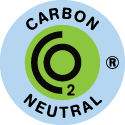 What is checked?
What is checked?
The environmental care system ensures a practical and clearly set out analysis. The following is carefully considered:
Drinking water
The ECO LABEL® environmental screening analyses drinking water in recognised laboratories. Checks will fully meet with the valid guidelines. The assessment investigates whether the water is fit for human consumption. Testing on colour and taste will also form an important part of this. Sustainable use of water is another element of the research. Information and guidance will be given on for example how to prevent waste.
Bathing water
Assessing the quality of the bathing water considers the water both within and beyond the complexes examined. Inside, the checks concentrate principally on swimming pools and jacuzzis. Outside, it is mostly the beaches and seawater that come under the microscope. Beaches are checked for among other things litter and beached chemical waste, such as oil.

Waste water
Waste water can be polluted by harmful substances. Via the sewage system these usually end up in the surface water. Advice on the use of detergents, soap and other cleaning agents can noticeably reduce pollution. Another area of interest is the reuse of rainwater.
Legionella
Legionella is a bacteria found in many places. Depending on the type, it can be the source of Legionnaires’ disease from water spray, for example in showers and jacuzzis. Water samples are taken and the environmental screening assembles a risk inventory. Advice will be given on how to prevent the legionella infection.

Soil
An examination of the soil may take place to assess its condition. The groundwater quality will be checked at the same time. In most instances of new built or reconstruction projects, soil examination is an obligatory part of the process.
Waste
The various waste flows will be investigated and mapped out. Waste separation is an essential part of an environmentally friendly business operation. Reuse of materials such as glass, paper and metals is often an option. Most companies these days have some form of recycling system in place. Separated waste collections can also result in cost savings.

Energy saving
Many companies already have energy saving measures in place. Common examples include low-energy light bulbs and reclamation installations. An energy screening will be performed to obtain a quick scan of energy use. This will often take place in collaboration with the energy supplier. Energy saving measures will be researched and include such things as insulation, air conditioning systems, solar panels and wind power. Other forms of green energy will also be considered.
Noise nuisance
If noise disturbance is an issue, the levels will be measured. Sources can include ventilation systems, extraction installations and traffic noise. Advice will be given on how to mitigate noise nuisance.
Air quality
This element assesses quality of air. The analysis includes checking of ventilation systems, air conditioning filters and extraction systems. Odour nuisance can also be the starting point for researching the air quality, for example in the event of sewage odours or the accumulation of exhaust fumes in parking garages.
Climate neutral
Processes will be examined for their potential contribution to climate change. An analysis of CO2 emissions will be made. If emissions are too high, a CO2 reduction programme can be drawn up. In some instances, limiting emissions is not feasible. In this event, the options for carbon offset will be investigated.
Purchase of sustainable products
Research into the acquisition of materials and products will reveal which are sustainable and exert less of a burden on the environment. Corporate social responsibility in practice means that a sustainable balance is sought between company economics, man and the environment. This is often referred to as people, planet and profit and is different for every company. The ECO LABEL® offers a strategic framework for the purchase of sustainable products.
Education en communication
The environmental issues will be discussed together with staff and management. In some cases, an educational programme will be put in place to consider the ECO LABEL® analyses. Objectives may be evaluated annually.

Specific checks
Specific checks are also possible within the scope of the ECO LABEL®, for example:
- Checks on food preparation and facilities
- Micro-organisms and toxicology
- Hazardous chemical substances
- Fire safety
The companies and institutions performing this type of research employ specialist and certified staff. They are also authorised to perform any statutory legal procedures. Strategies, plans and/or protocols are available for specific assessment, for example in view of calamities, leakages, chemical storage or second opinions.






